Annually 20 patients out of 100 thou of the adult population suffer from renal failure, and the number of kidney diseases steadily increases with age. The main problem both in Ukraine and in the world is the late detection of kidney disease, as quite often the initial renal failure is asymptomatic or with minimal complaints.
The kidneys, in addition to their excretory function, regulate blood pressure, balance chemicals such as sodium and potassium, produce hormones and perform other important functions in the body.


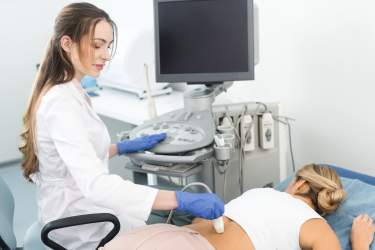
A nephrologist is a physician who specializes in the care and treatment of kidney disease. Nephrologist works to manage chronic kidney disease, kidney infections and kidney failure.
When you need to see a nephrologist
The main causes of chronic kidney disease are birth defects, urinary incontinence, hereditary diseases, glomerular and systemic diseases. Acute kidney disease can result from injury, poisoning or another illness.
- urine blood or protein, increased creatinine and blood urea;
- kidney infections;
- edematous syndrome;
- arterial hypertension of unknown cause;
- pain in the back or abdomen of unknown cause;
- urolithiasis, polycystic kidney disease;
- renal artery stenosis;
- renal failure, both acute and chronic;
- treatment with nephrotoxic medications.
- glomerulonephritis;
- pyelonephritis;
- interstitial nephritis;
- amyloidosis;
- polycystosis;
- secondary nephritis (hypertensive, diabetic, gouty nephropathy, lupus nephritis).
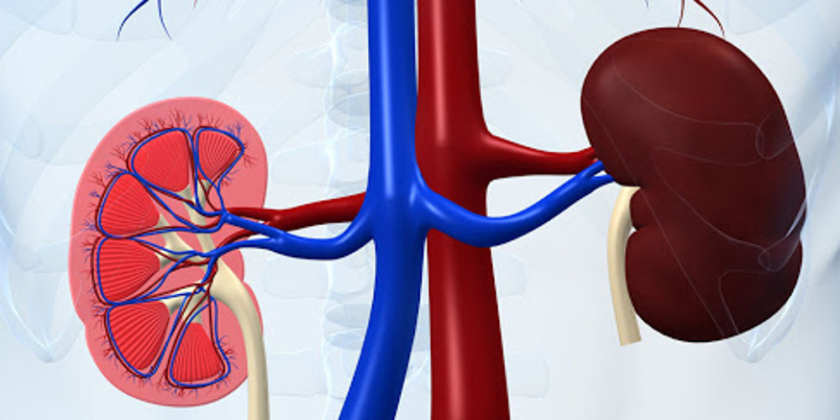
Therefore, nephrologists work closely with other medical specialists: oncologists, cardiologists, infectious disease specialists, gastroenterologists, urologists, gynecologists.
Nephrologists of the MC Dobrobut network use various diagnostic methods and advanced treatment methods for patients with kidney diseases. Our specialists are guided by the principles of evidence-based medicine and the guidelines of the European and American medical communities.
Diagnostics
As kidney disease often develops asymptomatically, it is very important to identify the problem and its cause on time.
Both laboratory and instrumental methods are used in the diagnosis of kidney diseases.
Laboratory methods allow a nephrologist to receive data on condition and functioning of the patient's body, determine the level of important elements in the body and understand the origin of the disease.
complete blood count and urinalysis;
nephrological markers: creatinine, urea, cystatin C, beta-2-microglobulin, albumin/creatinine ratio;
proteinogram (serum protein fractions);
- blood and urine electrolytes;
- Nechiporenko‘s test, Zemnitsky’s test;
- daily proteinuria (detection of urine protein);
- autoimmune markers.

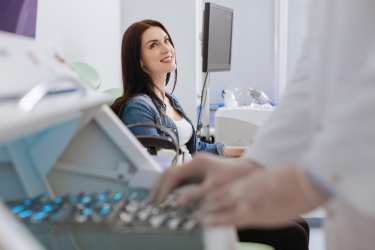
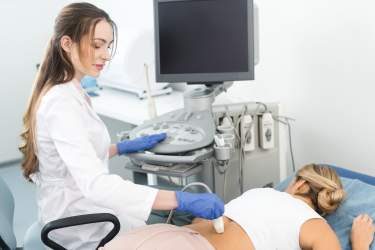
Kidney ultrasound is the main and obligatory instrumental diagnosis method. A doctor may prescribe kidney biopsy, which is one of the invasive examination methods.
- size of the kidneys and renal parenchyma;
- nephrosclerosis;
- concretions and calcinates;
- kidney cysts;
- enlargement of renal collecting system, hydronephrosis;
- abnormalities in the structure and position of the kidneys.
Ultrasound examination procedure
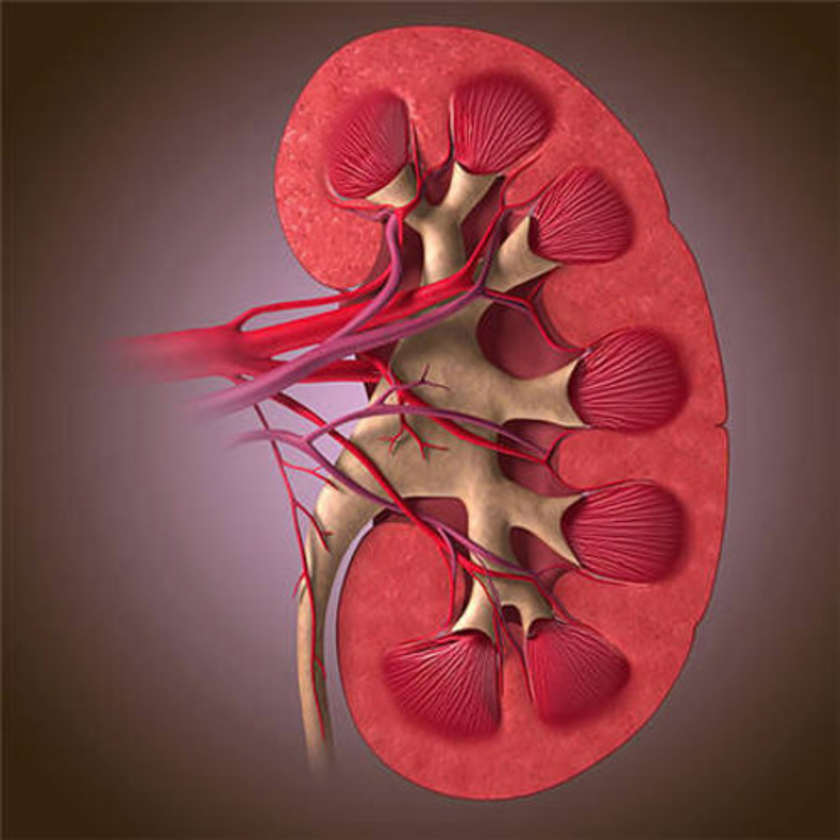
A patient strips to the waist and lies on an examination table, first on the one side, then on the other. A doctor, specialist in the functional diagnosis, sets special sensors on certain points on the patient’s back. They transmit ultrasound to a powerful computer, where the waves are converted into an image. The doctor sees the real image of kidneys on the monitor and interprets it.
The examination procedure lasts 20 minutes and has no contraindications.
A doctor may prescribe kidney biopsy, which is one of the invasive examination methods.
Percutaneous puncture biopsy of the kidney is an important examination for diagnosis of kidney disease. It is performed to evaluate kidney abnormalities, specify the diagnosis, determine the stage of the disease, choose the tactics of therapy and predict the course of renal disease.
Kidney biopsy procedure nephrobiopsy
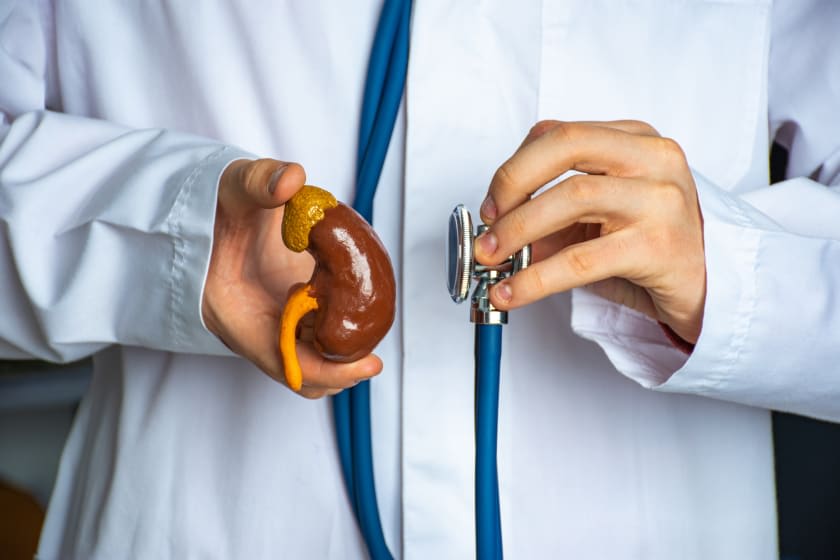
The kidney biopsy is performed at the outpatient department or in a day hospital on an empty stomach. The patient needs to undress to underwear, remove jewelry and lie down on an examination table with stomach on a roller. The kidney biopsy is performed in a small operating room with constant ultrasound control and under local infiltration anesthesia from the back with a disposable puncture needle
The kidney biopsy is performed on condition of normal blood coagulation and no persistent high hypertension, which minimizes the risk of bleeding. The procedure lasts 20-30 minutes. In 1-2 hours after the procedure and on the next day a full blood test and kidney ultrasound are taken; the patient is recommended bed rest for 10-12 hours lying on his back.
The extracted sample is sent for further electro-microscopic examination and immunohistochemistry assay by a pathologist. The nephrologist assesses the histological findings, makes diagnosis and determines severity of kidney damage, risks of renal failure progression and optimal basic therapy.
Preparation for the procedure
As a preparation, a patient should consult urologist who will perform a kidney biopsy. A patient needs to take the referral from a nephrologist, results of kidney ultrasound, general blood count, blood creatinine, coagulation profile, Lee White blood clotting time, blood type, rhesus factor and a blood pressure diary.
Modern nephrology rooms of the MC Dobrobut network are equipped with pulse oxymeters. These are portable devices for measuring blood oxygen saturation, which is important for diagnosis of some kidney diseases.
A wide range of diagnostic tools and techniques allows nephrologists of the MC Dobrobut network to make accurate diagnosis and prescribe appropriate treatment. All examinations and tests are performed in a comfortable patient-centered environment. Nephrologist explains to a patient the examination details and the need to apply a particular method of treatment in each individual case.

Treatment
Nephrologists of the MC Dobrobut network use advanced methods of conservative treatment, are guided by the international clinical protocols and modern standards of evidence-based medicine.
While working with patient nephrologists of the MC Dobrubut network:
- collect patient’s history, specify complains and all circumstances related to these complaints (lifestyle, heredity);
- conduct a physical examination of a patient: assess the physique, condition of the skin and subcutaneous tissue paying attention to changes in skin color, the presence of edema;
- nephrologists necessarily assess hemodynamic characteristics, such as heart rate and blood pressure;
- perform kidney punch or test Pasternatsky’s symptom, kidney palpation, if necessary;
- listen to the abdominal aorta and renal arteries with a phonendoscope, if necessary.
Differences between nephrology and urology

The nephrology and urology areas partially overlap as both deals with the treatment of kidneys. While nephrologist focuses on diseases and conditions that directly affect the kidneys, urologist focuses on diseases and conditions that can affect the male and female urinary tract.
The urinary tract includes the kidneys, renal ducts, bladder and urethra.
- kidney stones;
- bladder infections;
- problems with bladder control;
- erectile dysfunction;
- prostate disease.
By contacting the MC Dobrobut network, you can count on quality and timeliness of medical care. Qualified and experienced doctors using state-of-the-art equipment will make an accurate diagnosis and prescribe appropriate treatment. Our medical specialists continuously improve their knowledge and competencies and use the world advanced clinical achievements and methods in their every day practice.
Our services
Our advantages
Choose the nearest clinic to you
ISO certificates
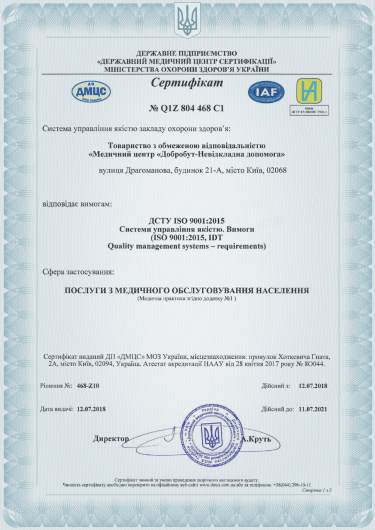
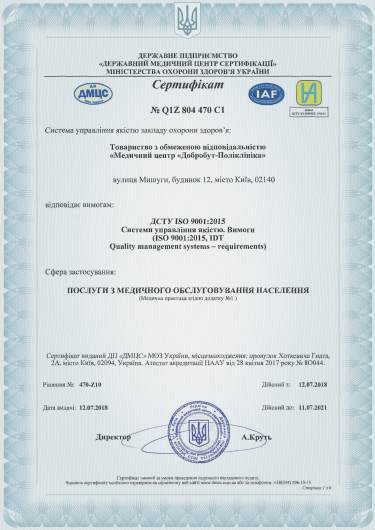
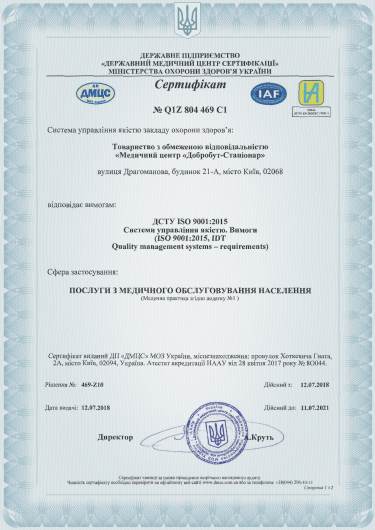
Accreditation certificates
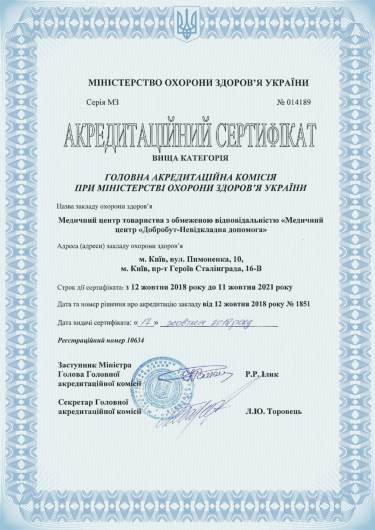
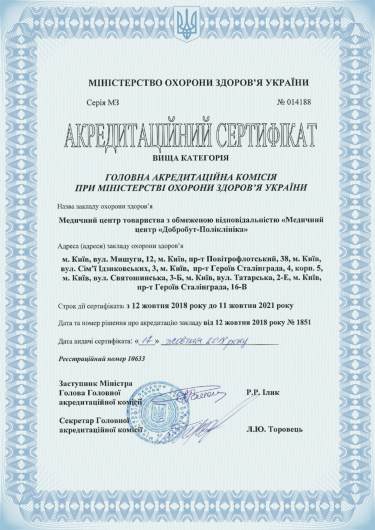
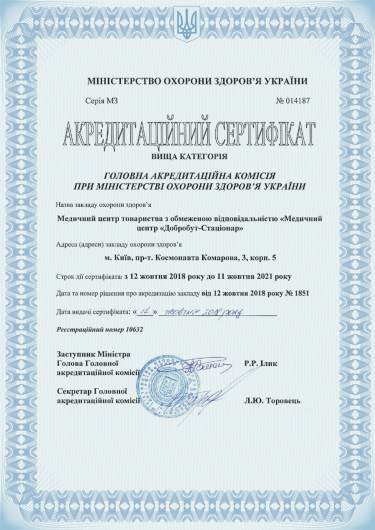
Medical practice licenses
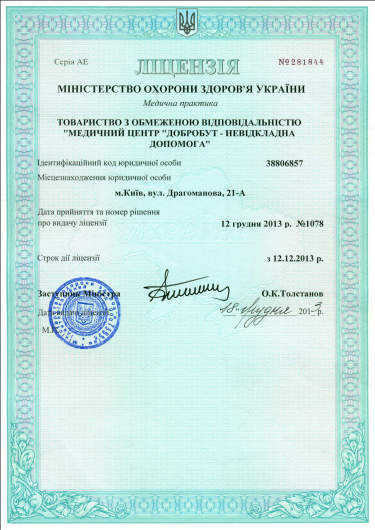
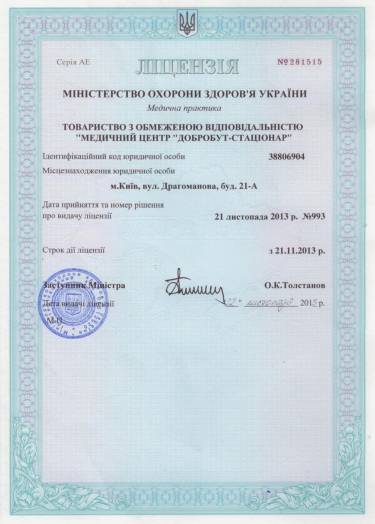
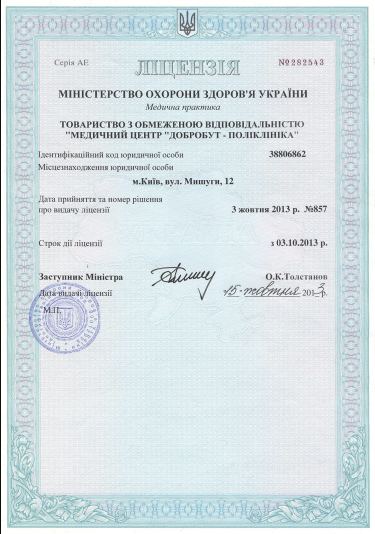
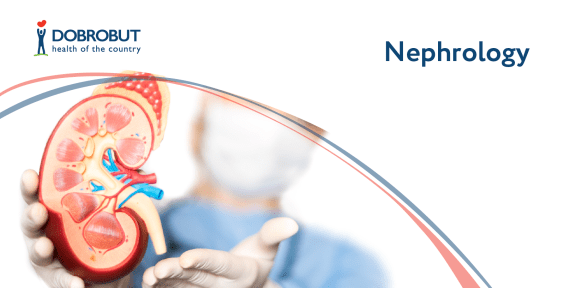




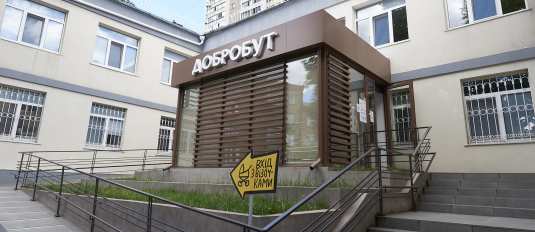
%402x.png)
%402x.png)
